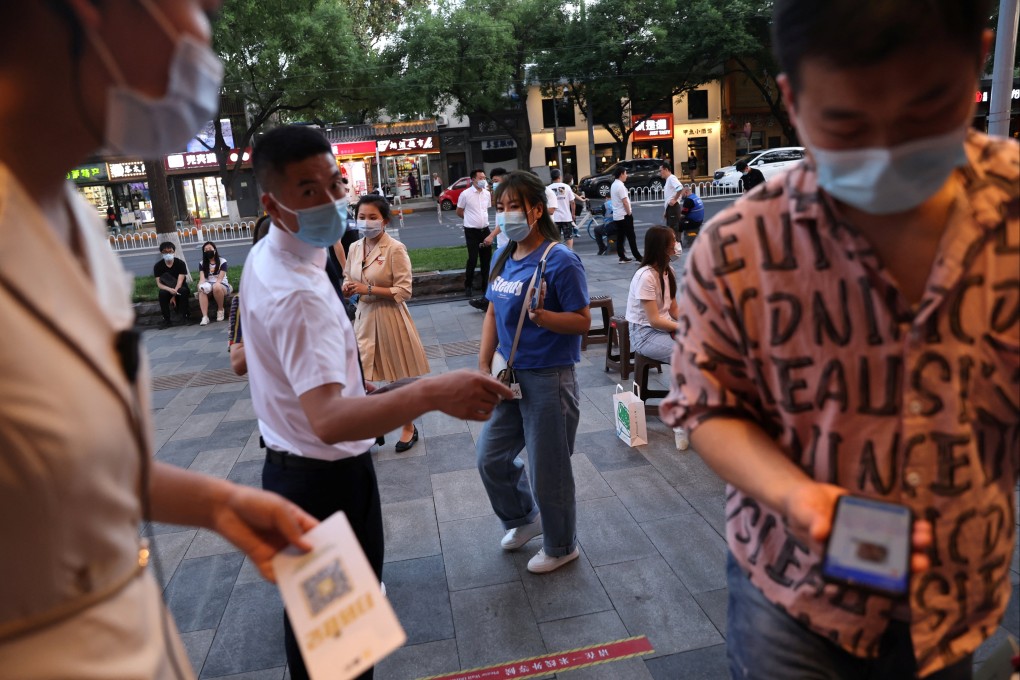Advertisement
Macroscope | How much is China’s ‘zero-Covid’ policy cutting economic potential?
- As long as China can maintain industrial production, thanks to the closed-loop system that keeps workers isolated, service-sector weakness will probably be tolerated
- Covid-19 is here to stay and this raises the question of whether zero-Covid is a policy mistake or a tool for social control
Reading Time:3 minutes
Why you can trust SCMP
24

China is entering a “zero-Covid” normal. People are now required to regularly take a polymerase chain reaction (PCR) test and show proof of a negative result when entering any public or commercial premises. The updating interval is currently 72 hours. But if the government feels insecure, it could be reduced to 48 hours.
A positive case will lead to the lockdown of numerous residential buildings and commercial facilities, as the infected person is likely to have come into contact with many others. In a recent example, positive cases at a hair salon in Shanghai led to the lockdown of residential buildings of some 500 of its customers. A dozen cases could paralyse a large city.
And despite the draconian measures, such as the two-month lockdown in Shanghai, positive cases continue to spring up. As Covid-19 isn’t going away for the foreseeable future, such disruptions will become normal, which will result in a significant reduction in service-sector output.
Advertisement
Industrial output is less affected, as “closed loop” arrangements are often adopted that keep workers isolated at industrial sites, which limits the risk of virus transmission.
We can expect China’s services sector to experience frequent disruptions. Further, some sectors may never fully recover. Tourism, for example, is impossible in the current environment. No one wants to risk being quarantined far from home.
Advertisement
As 10 per cent of the labour force is employed in travel and tourism, there will be severe labour market pressures. Also, numerous small businesses will close.
Advertisement
Select Voice
Select Speed
1.00x
